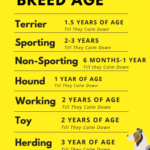Why Is My Dog Panting 3 Days After Giving Birth
Introduction
Giving birth is a natural process that occurs in many animals, including dogs. After giving birth, it is common for dogs to pant heavily as they recover from the delivery process. However, if your dog is still panting heavily three days after giving birth, you may be concerned that something is wrong. In this article, we will explore the reasons why your dog may be panting and what steps you can take to help her.
Reasons Why Your Dog Is Panting 3 Days After Giving Birth
1. Stress
Stress can cause dogs to pant heavily, and this could be a possible reason why your dog is still panting three days after giving birth. The stress of delivery and caring for her puppies could have taken a toll on your dog’s body, causing her to feel anxious and overwhelmed.
2. Pain
Giving birth can be painful for dogs, especially if there were complications during the delivery process. Pain could cause your dog to pant heavily as she tries to cope with the discomfort.
3. Heat
Dogs regulate their body temperature by panting, and if your dog is too warm, she may pant excessively. This could be particularly true if you live in a hot climate or your home is not adequately ventilated.
4. Dehydration
Dehydration can also cause dogs to pant heavily as they try to cool down their bodies. If your dog is not drinking enough water after giving birth, she may become dehydrated, leading to excessive panting.
5. Infection
In some cases, excessive panting could indicate an infection or other medical issue. If your dog has a fever or shows other signs of illness, such as lethargy or loss of appetite, it’s crucial to seek veterinary care right away.
What You Can Do To Help Your Dog
1. Keep Your Dog Cool And Hydrated
If heat and dehydration are contributing factors to your dog’s excessive panting, you can help by keeping her in a cool and well-ventilated area. Make sure your dog has access to plenty of fresh water and offer her ice cubes to help cool down.
2. Monitor Your Dog’s Behavior
Keep an eye on your dog’s behavior and look for other signs of distress or illness. If you notice any changes in her demeanor, appetite, or energy levels, it may be time to seek veterinary care.
3. Provide Pain Relief
If pain is causing your dog to pant excessively, talk to your veterinarian about providing pain relief medication. This could help alleviate her discomfort and reduce the amount of panting.
4. Keep Your Dog Comfortable
Make sure your dog has a comfortable and quiet place to rest after giving birth. Provide soft bedding and keep the area clean to promote healing and prevent infection.
Conclusion
Excessive panting three days after giving birth could be caused by a variety of factors, including stress, pain, heat, dehydration, or infection. As a responsible pet owner, it’s essential to monitor your dog’s behavior and seek veterinary care if necessary. By taking steps to keep your dog cool and hydrated and providing pain relief as needed, you can help her recover from the birthing process and ensure she stays healthy and happy. And remember: if all else fails, just give her some extra belly rubs ¨C that always seems to do the trick!



